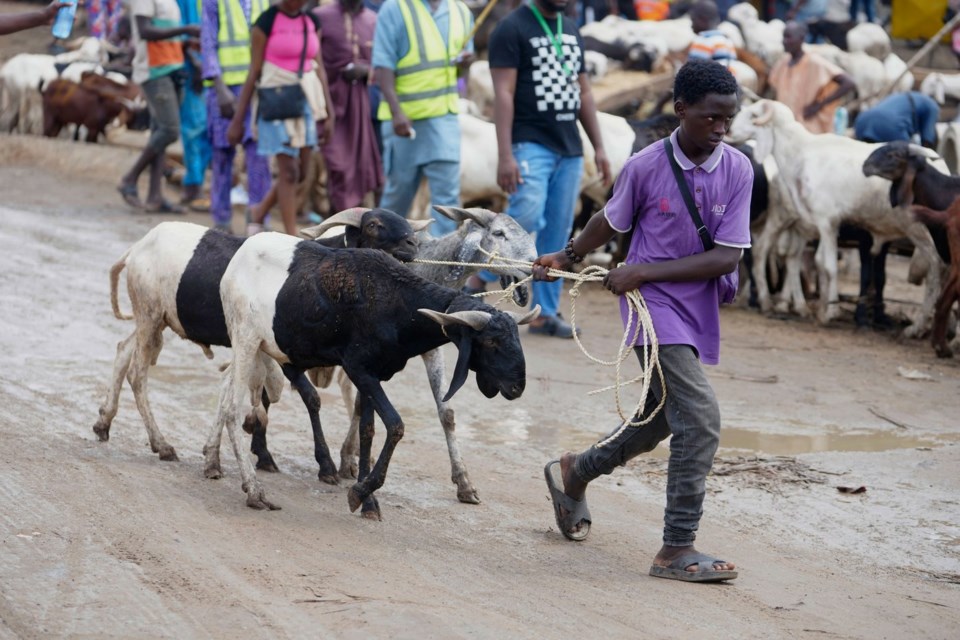KARA, Nigeria (AP) — Muslim families across west Africa are grappling with the steep cost of rams for the traditional sacrifice that is central to the celebration of , a struggle that mirrors the region's .
At the Kara livestock market in southern Ogun state, ram sellers and buyers are in a bind. Prices have at least doubled compared with last year, slowing sales for what is usually a busy market packed in the lead-up to Eid.
“The ram that I bought for 200,000 naira ($127) last year, this year we started negotiating from 600,000 naira ($380),” said Abiodun Akinyoye, who came to buy meat for the festival.
The U.N. World Food Programme said last month that over 36 million to meet basic food and nutrition needs in West Africa and Central Africa, a number expected to rise to 52 million during this year’s lean season from June to August.
More than 10 million of the most vulnerable people across the region have been uprooted by , the WFP said, added to other major drivers like food inflation and climate conditions like extreme weather.
“We are at a tipping point and millions of lives are at stake,” said , WFP’s regional director.
With a majority of Muslim populations in most of the worst-hit countries, families who previously bought rams to take part in the annual joyful festival are finding it difficult to sustain that lifestyle with some spending significantly more of their disposable income on trying to fulfill the religious rites.
“Everyone is suffering,” Nigerian ram seller Jaji Kaligini said as he lamented the fueled by President Bola Tinubu’s economic policies, such as a sudden . "We don’t know what to do.”
In countries like , where have worsened the living conditions, the military government banned ram exports this year to stabilize local supply. While that has helped availability, it has tightened supplies in neighboring Nigeria and Benin.
“There’s enough livestock (in Niger),” said Hasoumi Daouda, who was at a local market to buy ram. “But it’s the financial crisis that makes them too expensive to buy.”
Even in predominantly Muslim countries like Morocco, its rulers in February to be sacrificed during this year’s Eid al-Adha amid record inflation and climate change.
The challenge of hardship is also raising the question of how obligatory the ram sacrifice is for Muslims. The tradition is not mandatory for those who “genuinely cannot afford it,” Bukola Hameed, a Nigerian Islamic scholar, said.
However, those who can afford it also have “a duty to share their meat with poorer neighbors,” another Islamic scholar, Mikail Adekunle, added.
____
Adebayo reported from Abuja, Nigeria ____
Follow AP’s Africa coverage at:
Taiwo Adebayo And Dan Ikpoyi, The Associated Press



